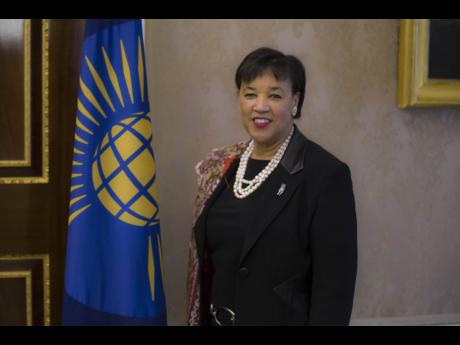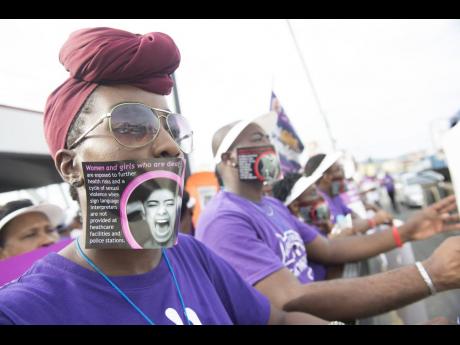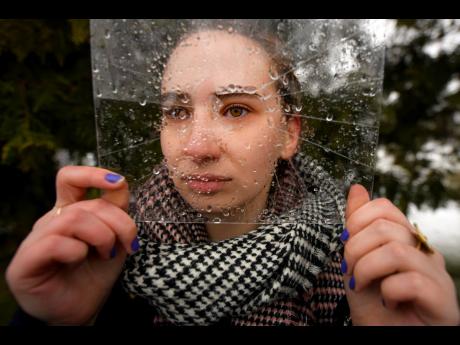Patricia Scotland | End violence against women and save $1.5 trillion a year
As we head towards the end of the year, many of us will soon be surrounded by our family and friends sat around dinner tables as we celebrate the festive season. Look around the table and reflect on the fact that, on average, every third woman you see will have experienced sexual or physical abuse at some point in their lives.
This violence is not a remote act happening in other people’s homes. It lives all around as an uninvited guest at the table. It thrives on secrecy, infiltrating homes, communities and workplaces. Yet we are nowhere near an appropriate global response that addresses the scale of this problem. If we are serious about tackling this issue, we cannot continue down the same path, or we will rob ourselves and women around the world of the future and life they deserve.
Violence against women and girls is not only one of the most pervasive human rights violations, but it also has significant economic costs. And this is proven. The global economy loses $1.5 trillion every year as a result of the consequences of violence against women, ranging from money spent in hospitals or on law enforcement through to the income lost when victims miss work.
FIGURES TEND TO RISE
Experience shows us that these alarming figures tend to rise during crises. We recently witnessed an up to 300 per cent increase in domestic violence during the pandemic. Encouragingly, many governments and organisations took robust measures to stem the rising tide of violence. But, as the pandemic recedes, the attention towards ending violence is fading with it. We are sleepwalking back into our old ways and failed practices, which the pandemic has demonstrated as ineffective, exposing too many women to men’s violence.
We know violence can be prevented. Studies show that investing in preventive solutions generates multiple returns, yet the continuing economic cost of violence demonstrates that most of our resources go towards intervening after the abuse has happened rather than preventing it from occurring in the first place. This is a much more costly approach, particularly at a time when global growth is slowing sharply, which is escalating poverty and hurting public spending on social services. If we resort to business as usual, the cascading effects will expose more women to violence while shrinking revenues and hindering the capacity of social services to adequately support victims.
We observed International Day for the Elimination of Violence Against Women and Girls on Friday, November 25. We have an opportunity to commit to a fundamental shift, one that puts the prevention of violence, and the inequalities that enable it, at the core of our collective efforts. Doing so is both a moral imperative and smart economics. Countries could use the resources saved through prevention to invest in achieving greater gender equality and make a bold step forward to achieving their commitments under the Sustainable Development Goals.
In the Commonwealth, we are working with our 56 member countries to accelerate efforts towards addressing violence against women and girls with a focus on prevention. In particular, we developed a pioneering tool that makes a strong economic case for addressing violence by measuring how a country loses when it does not act to prevent it. The tool helps countries measure the full extent of the issue, analyse the data and provide cost-effective solutions to improve the overall response to ending violence.
Recently our work in Seychelles revealed for the first time that the country loses 4.6 per cent of its gross domestic product to violence against women and girls. It further outlined system-wide responses to tackle violence, including through policies to safeguard victims, improve women’s financial independence and promote non-judgement frontline services. We have since been supporting Seychelles in implementing multi-agency measures, including a new domestic violence act, designed to prevent and respond to violence.
POWERFUL ARGUMENT
While violence in itself is enough reason to act, knowing the accompanying economic cost offers a powerful argument to propel governments, businesses and individuals into further action. It demonstrates that when an act of violence occurs, we all lose, and emphasises that ending it is in everyone’s interest. We urge countries to consider measuring the economic cost of violence as an annual exercise to evaluate the efficacy of their action and build on the findings to strengthen their response towards eliminating this violation.
We also need to remember that this is men’s violence, and we need to involve them in the prevention and intervention efforts as active allies. In this regard, we are complementing our policy response with steadfast advocacy. Armed with an array of easy-to-use advocacy resources, our Commonwealth Says NO MORE campaign takes a culturally sensitive, bottom-up approach towards engaging individuals, communities and businesses in raising awareness against gender-based violence, involving grassroots leaders to counter harmful social norms and training bystanders to effectively intervene.
Therefore, any intervention will be in vain if it is not backed up by decisive action from everyone, starting from making our homes safe, to our communities, to our workplaces and to our countries. Now is not a time to sideline this issue. Now, more than ever, is a time for a smart, targeted global response to violence against women and girls that puts out the wildfire of violence and sows the seeds of lasting peace for all. And if not now, when?
Patricia Scotland is Commonwealth secretary general. Send feedback to columns@gleanerjm.com.



